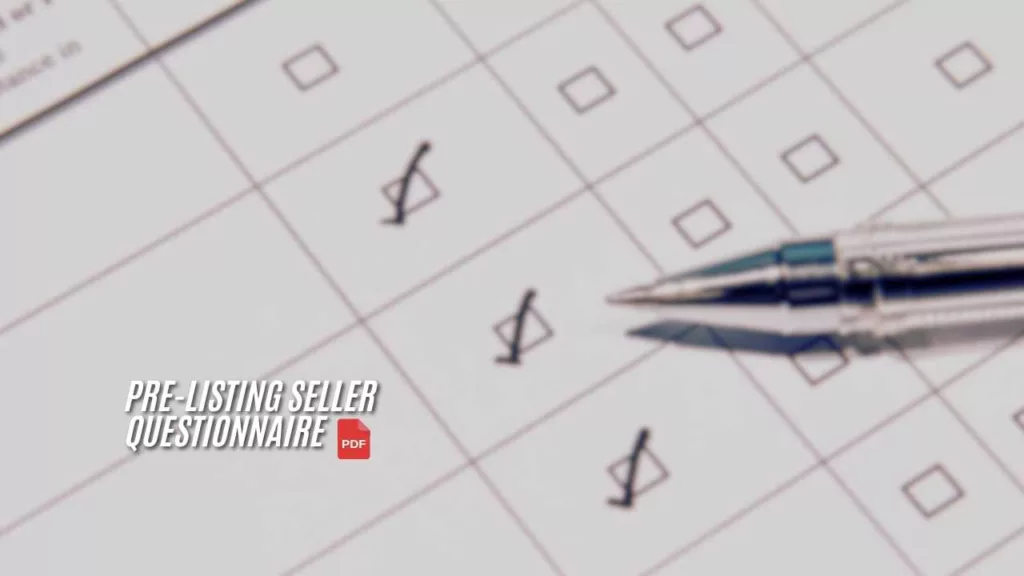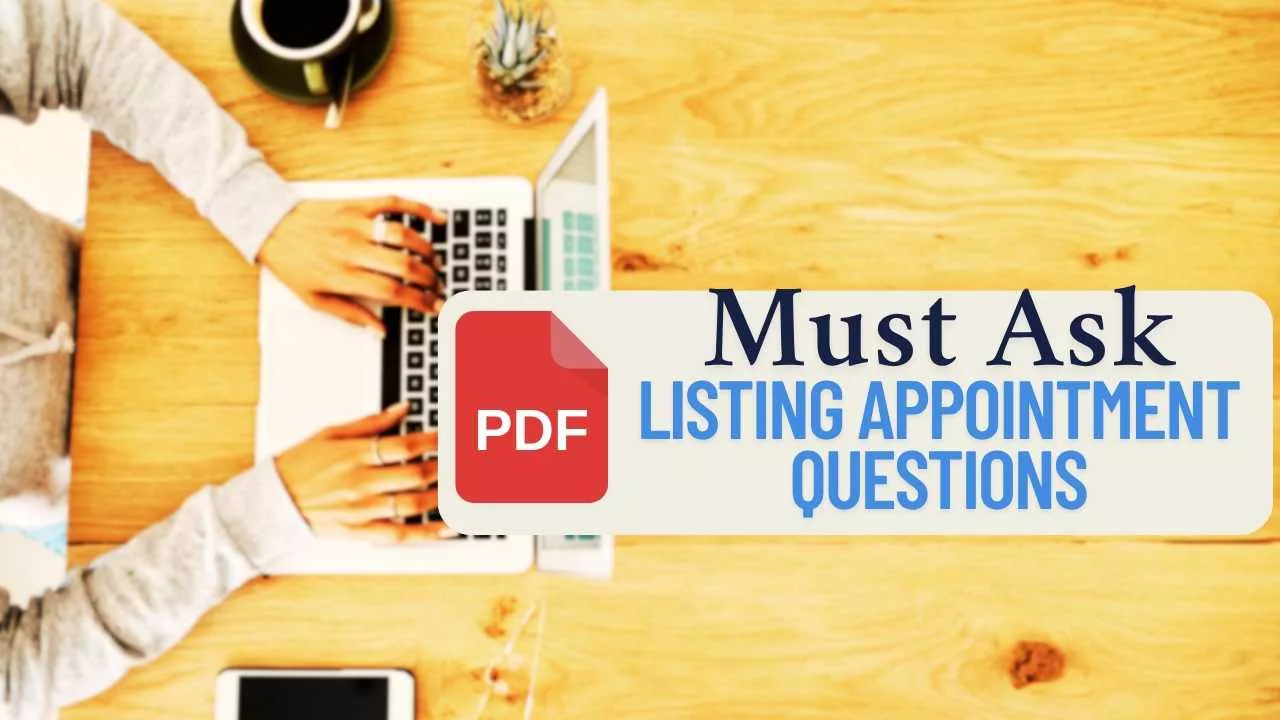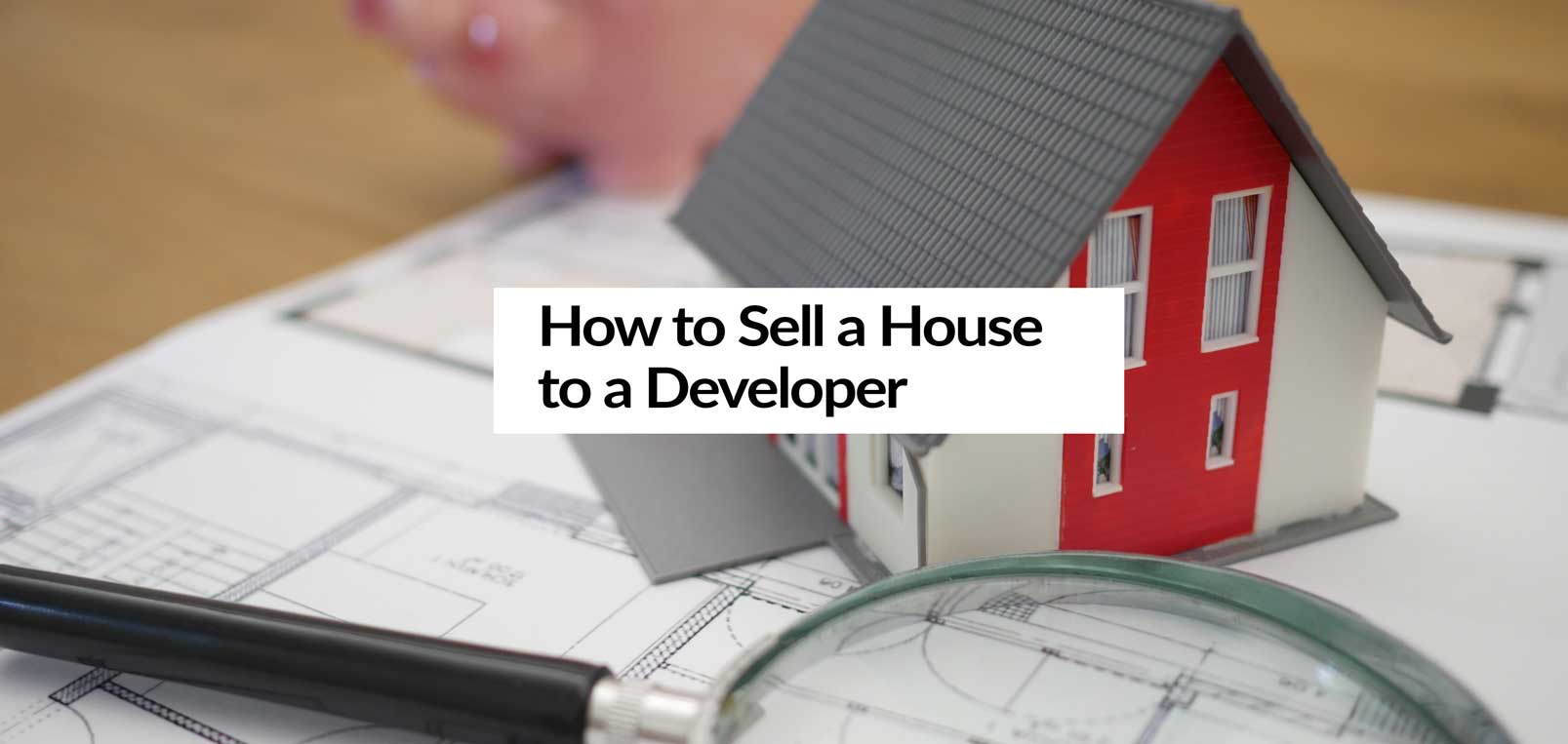Conversational Guidance

A successful listing appointment can make all the difference in your real estate career. It’s your opportunity to showcase your expertise, build trust with your potential clients, and secure more listings. Ask the right questions so you, as real estate professionals, can gain a full picture of the seller’s goals, the property’s unique selling points, and the local market dynamics. These insights not only help you craft a compelling pricing strategy and marketing plan but also ensure you stay steps ahead of other agents in the competitive real estate industry. Below is a comprehensive list of the key questions you should include in your next listing appointment. These questions, paired with thoughtful follow-ups, will help guide the home selling process and pave the way for a seamless and successful experience.
Download this Free Listing Appointment Questions for Sellers
PDF | Doc
Listing Appointment Questions Real Estate Agents Should ask Sellers
1. Why Are You Selling Your Home?
Why It’s Important
Connecting with a seller’s motivation and timeline is crucial to tailoring the sale process. They may be motivated sellers who need to sell quickly due. They may be experiencing a job relocation or downsizing. Maybe, they’re exploring the market out of curiosity. Regardless of the motivation, this insight sets the tone for your strategy.
Good Follow-Up Questions
- Are you looking to sell fast, or is maximizing your property’s value more important?
- What’s your ideal timeline for closing the deal?
2. What Updates Have You Made to Your Home Recently?
Why It’s Important
Knowing about recent updates, such as a new HVAC system or kitchen remodel, can help you highlight the home’s value to potential buyers. This also gives you a better understanding of where the property stands compared to similar listings in the local market.
Good Follow-Up Questions
- Are there any planned updates or repairs before listing?
- Have other professionals worked on the property, like contractors or handymen, for major repairs or improvements?
3. What’s Most Important to You in the Home Selling Process?
Why It’s Important
This question allows you to align your approach with the seller’s expectations, whether it’s getting top dollar, selling quickly, or ensuring a smooth experience. It also demonstrates your client-focused mindset, helping you establish trust.
Good Follow-Up Questions
- Are there specific marketing materials or strategies you’d like to prioritize?
- Do you want to hold open houses to attract potential buyers?
4. Have You Worked with Other Agents Before?
Why It’s Important
This helps you understand the seller’s past experiences and expectations with real estate agents. If they’ve had negative experiences, you can position yourself as a trusted partner who provides a better understanding of the selling process.
Good Follow-Up Questions
- What did you like or dislike about their approach?
- Are there specific services or communication styles that are most important to you?
5. Do You Have a Pricing Strategy in Mind?
Why It’s Important
Discussing the asking price early ensures you’re on the same page. It also opens the door to educate the seller about market data and the role of a comparative market analysis (CMA).
Good Follow-Up Questions
- Have you reviewed recent sales in your neighborhood?
- Are you open to adjusting the price based on market trends?
6. Is Your Property Unencumbered?
Why It’s Important
Legal and financial obstacles, like liens or outstanding mortgages, can complicate the selling process. Understanding these upfront helps you set realistic expectations and prepare accordingly.
Good Follow-Up Questions
- Are there any legal or financial details I should be aware of?
- Have you consulted with other professionals, like attorneys or financial advisors, about the sale?
7. What Do You Believe Makes Your Property Stand Out?
Why It’s Important
Sellers often have valuable insights into their home’s unique selling points that help appeal to potential clients. From a custom floor plan to a stunning backyard, these details can shape your marketing strategy.
Good Follow-Up Questions
- Have potential buyers or visitors commented on specific features they loved?
- Are there historical or neighborhood-related highlights you’d like to include?
8. Do You Need Help Understanding the Listing Agreement?
Why It’s Important
This question demonstrates your willingness to walk the seller through every step, building trust and ensuring transparency. It also highlights your role in simplifying what can often feel like an overwhelming process.
Good Follow-Up Questions
- Would a listing presentation checklist or other materials make this clearer?
- Do you have any specific concerns about the agreement?
9. Would You Like To Hear More About My Track Record?
Why It’s Important
Highlighting your sales experience and proven strategies for selling homes helps solidify confidence in your abilities as a listing agent.
Good Follow-Up Questions
- Would examples of my recent listings or a detailed marketing plan be helpful?
- Can I provide references from past clients?
10. Are You Familiar With the Listing Process?
Why It’s Important
Sellers new to real estate often benefit from a breakdown of the home selling process. This is a powerful tool to set expectations clearly and prevent future miscommunications.
Good Follow-Up Questions
- Should I provide a step-by-step guide or an ultimate listing appointment checklist?
- Would you like to role play a listing presentation to stay organized?
Bonus Tips for a Successful Listing Appointment
- Stay Organized by taking notes and using tools like a listing appointment checklist.
- Bring Marketing Materials that showcase your unique selling points as a real estate professional.
- Set Expectations Clearly to avoid surprises during the sales process.
- Use Market Data to back up your pricing strategy and give sellers valuable insight into the local market.
Ask these tailored questions and following up thoughtfully so you can make your listing appointments more efficient and results-driven. With a strong understanding of the seller’s needs and goals, you’ll build stronger relationships and create a pathway to achieving the sale at top dollar.

What You Should Bring to the Listing Appointment
A successful listing appointment relies on preparation, and bringing the right tools and materials can help you establish trust and stand out. If you’re a new agent or a seasoned professional, then being well-equipped can make all the difference in securing more listings. Below are key suggestions for what to bring, organized with actionable tips for real estate agents.
1. A Comprehensive Listing Appointment Checklist
Set yourself up for success by staying organized and well-prepared with a checklist tailored to both residential and commercial real estate appointments.
- Include a detailed breakdown of the home listing and selling process to discuss with sellers at a listing.
- Ensure your checklist covers key topics like pricing strategy, marketing plans, and updates recently made to the seller’s home.
- Use it to stay focused and guide the conversation seamlessly.
2. A Comparative Market Analysis (CMA)
A comparative market analysis is a powerful tool that provides sellers with a full picture of their home’s value within the local market.
- Highlight recent sales data for similar properties to support your pricing strategy.
- Include insight into the listing process and explain how you’ll price the seller’s home competitively.
- Customize your CMA to appeal to potential sellers, focusing on specific neighborhood trends.
3. A Polished Listing Presentation
Your listing presentation is your chance to make an impact and demonstrate your expertise as a real estate professional.
- Showcase your marketing strategy, including plans for open houses and online exposure.
- Include examples of your track record, such as past successes in securing top dollar for clients.
- Tailor your presentation to address common questions to ask sellers about their needs and goals.
4. Personalized Marketing Materials
Good marketing materials not only highlight your services but also help establish your unique selling point as a listing agent.
- Prepare flyers, brochures, or a digital portfolio that outlines your approach to the selling process.
- Bring materials that explain how you’ll attract potential buyers and market the seller’s home effectively.
- Don’t forget to provide more tips and advice for sellers, showing your proactive business mindset.
5. A Business Card and Other Essentials
Simple yet vital, never show up without your business card as it leaves a lasting impression and keeps the door open for future communication.
- Carry several cards to leave behind for the seller and any potential referrals they might have.
- Pair your business card with a folder containing key documents or helpful resources for the seller.
- If you’re a new agent, including detailed examples of your marketing strategies can help build credibility.
6. Notes on the Seller’s Property
Taking notes on the seller’s home or business property ahead of time demonstrates how serious and prepared you are.
- Discuss any updates recently completed on the property, such as renovations or upgrades.
- Note features that help the property stand out or appeal specifically to motivated buyers.
- Use this research to craft key questions tailored to the seller’s priorities.
7. A List of Key Questions to Ask Sellers
Understanding a seller’s goals and expectations is critical to the success of the listing process.
- Ask about their ideal timeline, selling goals, and how their property has been maintained.
- Be prepared to address concerns about pricing, the comparative market analysis, or marketing efforts.
- Use their responses to craft a personalized follow-up plan and ensure clear communication.
8. A Strategy for Finding More Listings
For agents specializing in commercial real estate or residential properties, always have a plan for generating more listings.
- Offer insights from the local real estate market to position yourself as an expert.
- Use conversations with potential sellers as opportunities to ask for referrals or leads.
- Talk about innovative approaches you use to market properties and attract buyers.
Bring these tools and following these tips so you’ll leave a strong impression at your listing appointments. A successful presentation not only helps you secure the listing but also builds your reputation as a trusted real estate professional who consistently delivers results.
Check Back for Updates
Every listing appointment is your chance to showcase your expertise, gain potential clients’ trust, and secure more listings for your real estate career. Prepare thoroughly with a listing presentation checklist and focus on key questions so you’ll stand out as a trusted partner in the real estate industry.
About the Author

Joseph E. Stephenson, REALTOR®
License #00054082 | Kansas & Missouri
Affiliated with Welch & Company (License #CO00000477)
Joseph E. Stephenson is a licensed real estate professional in Kansas and Missouri with a career built on dedication to integrity and client-focused service. To learn more about how Joseph can assist you in your real estate endeavors, visit his REALTOR® profile at realtor.com.
Verify Joe’s Real Estate License Credentials
Real Estate Agent License VerificationVerify Joe’s Business Credentials
Joseph E. Stephenson also operates a business named Stephenson Residential, LLC. You can verify the business at the Kansas Secretary of State’s website.
Verify Business Credentials




